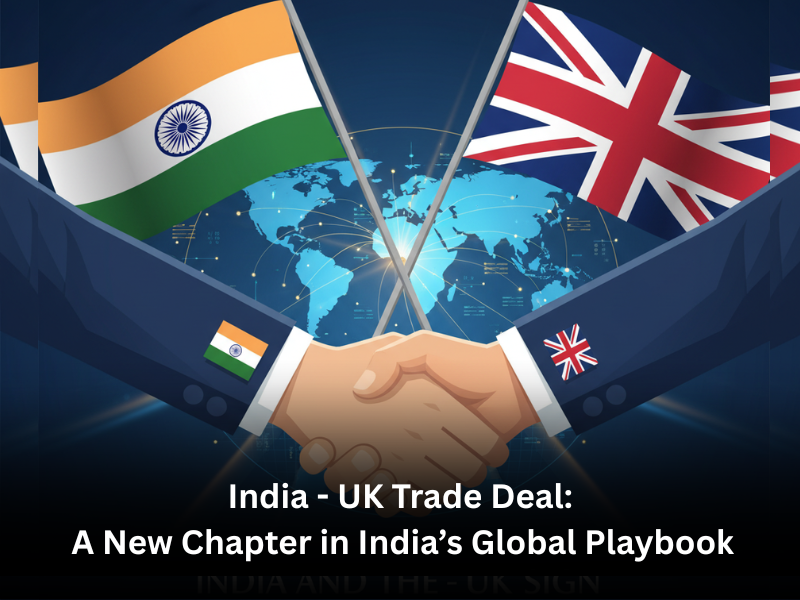Team SKM,
India and the UK have sealed a landmark trade pact that could reshape how India does business with the West. Finalized in July 2025 and set to take effect by July 2026, the Comprehensive Economic and Trade Agreement (CETA) promises to boost exports, open new markets for services, and give India a much-needed hedge against the unpredictability of US trade actions.
Expanding Beyond the US
For India, the deal marks a strategic diversification away from the US-centric trade corridor. With Washington raising tariffs on several key Indian export categories, the UK agreement offers an alternate, stable market.
Labor-intensive industries such as textiles and apparel stand to gain the most, benefiting from lower tariffs and easier access to British consumers. These openings could cushion exporters from the recent slowdown in US orders. The gems and jewelry sector, though part of the agreement, is expected to see only marginal benefits given the UK’s smaller market share in global luxury demand.
A Win for Services
The bigger prize lies in services, one of India’s strongest growth engines. The pact grants Indian firms full commitments in Computer and Related Services, bolstering the country’s ambition to become a global hub for high-value digital exports. This aligns with India’s broader push to raise services’ share of both GDP and employment, especially as technology and consulting firms expand their global footprint.
Investment Moment
British Prime Minister Sir Keir Starmer led the largest-ever UK business delegation to India during the signing, signaling strong investment intent. Both governments have set an ambitious target to double bilateral trade by 2030, focusing on technology, clean energy, manufacturing, and digital innovation.
If realized, this could translate into higher capital inflows, new jobs, and a boost for Indian startups looking for partnerships or funding from established UK firms. For Britain, it’s a chance to tap into the fastest – growing large economy at a time when its own trade relationships are being recalibrated post-Brexit.
Mobility Still a Sticking Point
One area where talks didn’t move much was visas. Despite India’s push for easier movement of professionals, the UK refused any broad relaxation of visa rules. Instead, both sides agreed to explore targeted carve-outs for short-term business travel and specialist professionals during the implementation phase. These could still prove valuable for Indian fintech’s, asset managers, and legal firms aiming to expand into mature UK markets.
Culture and Collaboration
Beyond economics, the pact has a cultural ripple. Co-productions in entertainment, especially Bollywood projects filmed in the UK, are expected to generate thousands of local jobs and deepen people-to-people ties. The deal underscores India’s growing leverage to secure comprehensive partnerships with Western economies – part trade, part cultural diplomacy.
What It Means for India
The India-UK trade deal isn’t just another bilateral pact; it’s a statement of intent. It signals India’s readiness to negotiate on equal terms with advanced economies and to build buffers against global uncertainty.
Success will now depend on speedy implementation, clarity around professional mobility, and ensuring that small exporters and service providers actually benefit from fine print.
If executed well, this could be the start of a new era-one where India’s global trade story isn’t defined by dependency, but by diversified resilience and strategic confidence.

